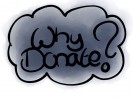Some of the more interesting things I’ve come across recently:
Identities are not Arguments
If we say “I’m a woman; I know what’s sexist and what isn’t”, how can we respond to a woman who says that what’s really sexist is denying women’s essential feminine nature which limits her to marriage and babies?
Members of marginalized groups have the same diversity of opinion that people who aren’t members of marginalized groups do. This is because members of marginalized groups are people, with people’s tendency to have their own opinions, rather than members of the Oppression Borg. In fact, the whole argument is oppressive, I think; it pedestalizes oppressed people by assuming they are always correct, and erases the differences and diversity among marginalized people, presenting them as a stereotyped group that all shares the same opinions.
…It is time to take up the thorny issue of internalized -isms– when women, or LGBT people, or poor people or people of color, or disabled people believe -ist things that hurt themselves. A lot of people don’t like talking about internalized -isms. This impulse comes from a kind place.
…The other reason a lot of people dislike the concept of internalized -isms is that it has so often been used to delegitimize people’s preferences. Women who wear lipstick, do sex work, stay at home to raise their children, or enjoy kinky sex have long been accused of only doing those things because they’ve been brainwashed by the patriarchy.”
Oh, just go read the rest! It’s long, but very much worth a read as an exploration of some incredibly thorny areas: the fact that people within marginalised groups are people, with all the diversity of views that entails. The complications of internalised -isms. The fact that internalisation is “the normal condition for members of oppressed groups”.
I can’t say that I have an answer to any of those questions. Being a member of an oppressed group does give you an insight into your experiences that people outside the group don’t have. That doesn’t mean you can’t be as dead wrong about your oppression as anyone else. We do use words like “false consciousness” to shame oppressed group members for how they perform their group membership.
I don’t think there’s a simple solution to any of this, but it’s definitely a question that needs to be explored.
What If Everything You Know About Disciplining Kids Was Wrong?
“Under Greene’s philosophy, you’d no more punish a child for yelling out in class or jumping out of his seat repeatedly than you would if he bombed a spelling test. You’d talk with the kid to figure out the reasons for the outburst (was he worried he would forget what he wanted to say?), then brainstorm alternative strategies for the next time he felt that way. The goal is to get to the root of the problem, not to discipline a kid for the way his brain is wired.”
I get the feeling this applies to adults as much as it does kids.
It also reminds me of a lot of Libby Anne‘s writing, which I read voraciously. I’m not a parent and don’t have intentions to be, but I do care deeply about how adults behave toward children. We were all kids once. I know many adults who live with damage caused by parents who were so invested in getting them to do as they were told that they forgot that they were raising a child to be an adult.
Also, as someone who’s spent time teaching teenagers I find this incredibly interesting. It’s always interesting when kids expect you to respond to their opposition in kind, and instead they find you talking to them about what’s going on and working out solutions with them.
Reflections on the state of LGBT activism in Africa
Go read the article. Especially if you’re a Westerner, ’cause that means there’s a ludicrously high chance you’re terribly ill-informed on all things African, so you might as well. This struck me, though:
Gay pride events, which constitute the visible side of LGBT political mobilization in the West, are still an extremely rare occurrence on the continent (with the exception of South Africa). However, activists in countries such as Uganda and Mauritius have held Pride events in recent years (albeit in covert ways). In Cape Verde, the city of Mindelo now holds an annual street party where LGBT people and allies celebrate together.
I find it really interesting, especially because Pride events are one of the few signs of LGBTQ activism and community that we in the West actually hear about. And yet: to what extent is this just Westerners assuming that what works for us is directly transplantable onto other cultures and contexts? The rest of the article goes into dozens of ways in which African countries and LGBTQ activists and communities are making positive change. As well as pointing out clearly that a huge proportion of homo/transphobia in African countries is a direct result of colonialism. So there’s that.
And finally, last but by no means least, there’s this:
Tara Flynn: You don’t talk about abortion in Ireland. But I have to.
In her words:
The procedure. Kind doctors. Compassion. “Are you going to be all right getting back to the airport? How will you get there?” Picking me up post-procedure and putting me back in bed when I tried to leave too soon and collapsed. I couldn’t get back to Ireland, to my loved ones, quickly enough. Relief. Relief. Tears. Relief.
A recliner at the airport, my coat over me. A friend to pick me up when I landed. Relief.
But the second I landed, I became a criminal. Guilty. Shameful. A killer. It didn’t matter that I knew I was none of those things, like so many thousands before me (and an average of 12 every day since). I kept my mouth shut, like a good woman. I didn’t want to attract the vitriol so many who say their focus is life feel free to dispense.
I wasn’t ashamed; I made the most responsible choice I could have made at that time and in those circumstances. But I was shamed into silence. This leads to secrets, lies and real, live, actual women putting themselves at risk for the want of compassionate care. Pretending it isn’t happening isn’t helping. It’s time to talk, as Róisín Ingle did in this newspaper on Saturday.
And so, I decided to put a name and a face to just one person who has made the journey that means we don’t have to face facts here. These are not abstract “women”. It doesn’t take a statistician to point out that you know someone who has made that journey. You do, you know.
Every day, eleven women make the journey out of Ireland for abortions. And yet, I can count on my hand the number I’ve heard ever speaking of them.
Even bloggers have to pay the bills! Monthly subscriptions- no matter how small- help give me the security to devote time to this place and keep a roof over my head. If you like what you read, please do help out:




